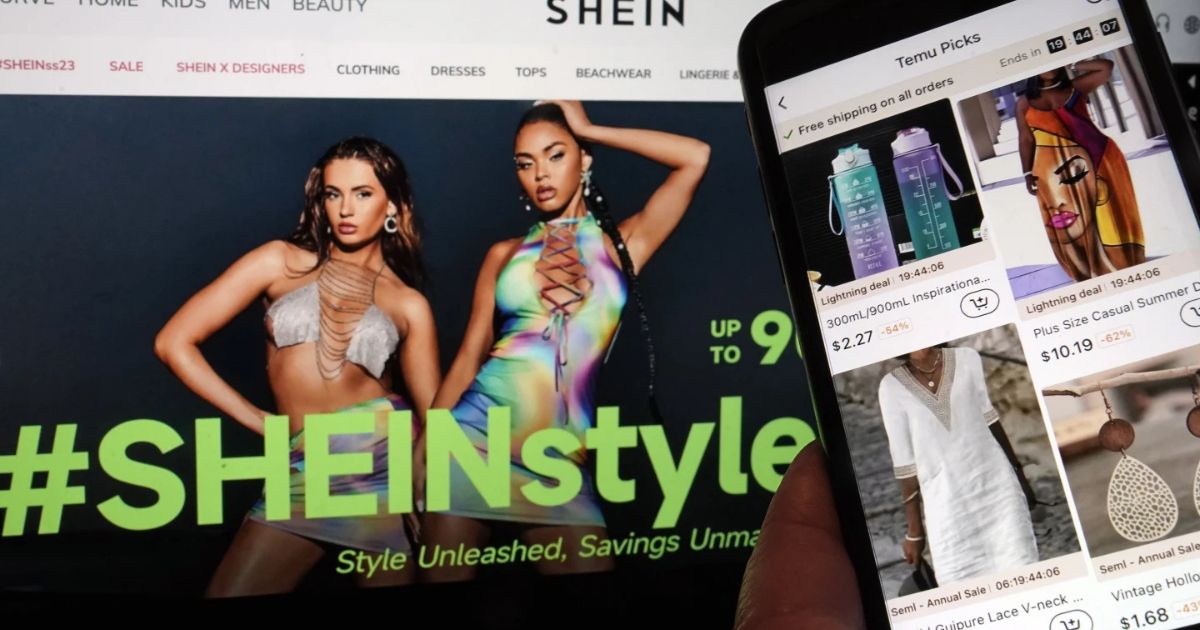By Aaron Knapp Staff Reporter
Donald Trump has signed an executive order to shut down a trade loophole known as “de minimis” that has allowed low-value packages from China and Hong Kong to enter the US free of duties.
Blow to Fast Fashion Giants
The move appears to be a massive blow to fast-fashion companies such as China-based Shein and Temu, which managed to rapidly expand in the US through the almost century-old de minimis rule. This tariff exemption will end on 2 May, the White House said on Wednesday.
End of Duty-Free Entry
More than 90 per cent of all packages coming into the US enter via de minimis, and of those, about 60 per cent come from China, according to reports. The number of shipments entering the US through the duty-free route has exploded in recent years, reaching nearly 1.4 billion packages in 2024.

Initial Order and Delay
Mr Trump had signed an initial order on 1 February ending duty-free entry for the cheap Chinese goods, but later paused the order because of logistical issues following pushbacks.
Timing Coincides with Increased Tariffs
The announcement was made shortly after Mr Trump announced sweeping “reciprocal” tariffs on China, with Beijing now facing 54 per cent tariffs on exports to the US.
Understanding the “De Minimis” Exemption
The “de minimis” exemption, a longstanding rule that applies to packages entering the US worth under $800, allows retailers overseas to sell products at lower prices by shipping them straight to consumers, bypassing domestic warehouses.
Historical Context of the Rule
The de minimis rule, derived from the Latin phrase de minimis non curat lex (the law does not concern itself with trifles), was initially introduced in the US in 1938 to reduce administrative burdens.
Impact on Direct-to-Consumer Retailers
The loophole has allowed direct-to-consumer Chinese retailers Temu and Shein to sell goods in the American market at cheap rates, quickly gaining popularity in recent years.
New Duty Rates Imposed
The White House on Wednesday said imported goods from China and Hong Kong sent outside the international postal network and valued at or under $800 would now be subject to all applicable duties. Imported goods under $800 would now be subject to a duty rate of either 30 per cent of their value or $25 per item, with that rate increasing to $50 per item after 1 June.
White House Rationale: Curbing Fentanyl Flow
The Trump administration said the move was intended to curb the flow of fentanyl into the US. “President Trump is targeting deceptive shipping practices by Chinese-based shippers, many of whom hide illicit substances, including synthetic opioids, in low-value packages to exploit the de minimis exemption,” the White House said in a statement on its website. It said the US customs and border protection department apprehended more than 21,000 pounds of fentanyl at the borders, which was “enough to kill more than 4 billion people”.
Trade War and Opioid Concerns
Mr Trump kicked off a global trade war earlier this year by increasing tariffs on all Chinese imports to 20 per cent from the previous 10 per cent, saying it was to punish Beijing for its failure to halt shipments of chemicals used for the production of the deadly opioid.
China’s Response: Accusations of “Blackmail”
China says Mr Trump has repeatedly undermined bilateral counter-narcotics cooperation and used the synthetic opioid as a bargaining chip to “blackmail” Beijing.
Shein and Temu Adapt to Changes
With the changes to the US de minimis threshold already anticipated, Temu, owned by PDD Holdings, has rapidly expanded its semi-managed model, an Amazon-like strategy that sees goods shipped in bulk to overseas warehouses instead of directly to customers. PDD Holdings’ co-chief executive Chen Lei last month told analysts to expect “challenges” for its global business, adding that PDD’s response includes exploring new business models and experimenting with “innovative localised supply chain solutions”. Shein has also started to diversify its supply chain. Though the vast majority of its products are still made in China, it has added suppliers in Vietnam, Brazil and Turkey, a move that might also accelerate in the wake of new tariffs and regulations.
Review and Potential Expansion of Rules
The White House said commerce secretary Howard Lutnick would submit a report within 90 days assessing the order’s impact and considering whether to extend these rules to packages from Macau.
China Seeks Communication
China’s commerce ministry on Thursday said the government was willing to communicate with the US on important bilateral issues such as the economy and trade.
Further Tariff Hikes Announced
Mr Trump announced on Wednesday that US imports from China will be hit with a blanket 34 per cent tariff, on top of the 20 per cent he previously imposed, bringing the total new levy to 54 per cent. Beijing hopes to “resolve various issues through equal consultation”, a spokesperson with the ministry told reporters.
China Calls for Reversal
Earlier in the day, the Chinese foreign ministry called on Mr Trump to reverse the new tariff measures and correct his “wrongdoing”, claiming that the imposition of additional tariffs on China and other countries “severely violated” World Trade Organisation rules.
